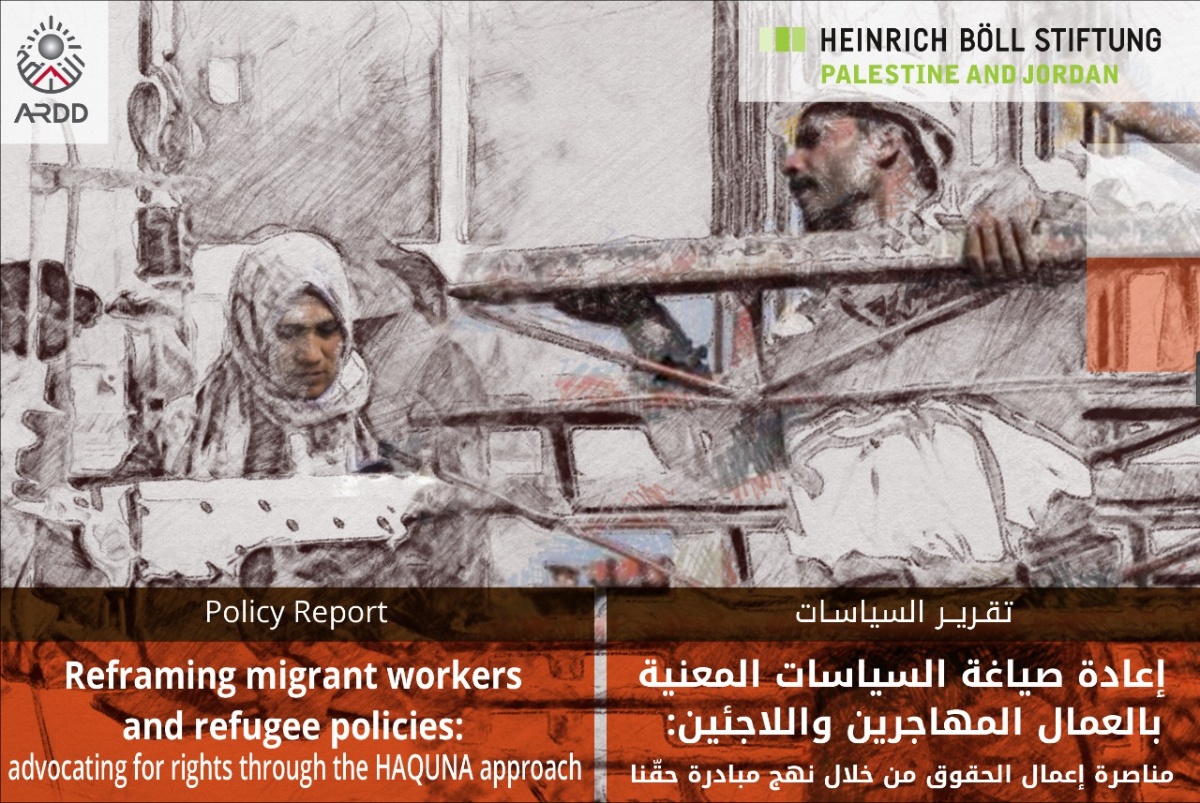This report builds on four discussion sessions with the Migrant Workers Committee (MWC) led by ARDD within the framework of the Advancing Haquna project. The policy memos combine the central contribution of MWC members together with evidence from sectorial studies and analyses of available literature conducted by ARDD. They offer specific assessment and policy strategies addressing:
(1) Legal aid access for migrant workers and refugees; (2) Labor rights framework; (3) Access to basic services; (4) Durable solutions for migrant workers and refugees. The policy memos put forward a set of actionable recommendations, transversal and intersectional to all themes, for enhancing the protection of refugees and migrant workers, favoring the achievement of better working and life conditions and their inclusion in the host country’s social and economic environment. They all point out the need for direct engagement of migrant workers and refugee communities in advocating for their rights and protection. With the aim to keep
developing the bottom-up approach that is at the core of the MWC and in cooperation with ARDD, new ways forward based on lessons learned through the implementation of the Haquna project were articulated emphasizing the broader, regional dimension of grassroots advocacy and mobilization for guaranteeing protection to vulnerable groups.
Specifically, the MWC calls for continuous efforts aiming at:
1- Continuing providing pro-bono legal aid for the protection and empowerment of migrant workers and refugees.
2- Organizing legal awareness sessions as part of the Haquna project, reaching more members of the community.
3- Organizing specialized workshops with relevant stakeholders and actors such as UNHCR that can share valuable knowledge
on legal social and economic avenues available to migrants and refugees to protect their rights and improve living conditions.
4- Awarding official certificates to members attending awareness sessions in order to strengthen their role within communities.
5- Establishing committees of migrant workers and refugees in the whole Arab region so as to strengthen the regional resilience
of people on the move, building on the achievements of the Jordanian experience.


